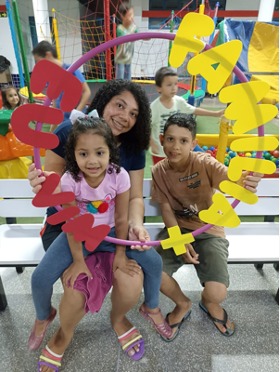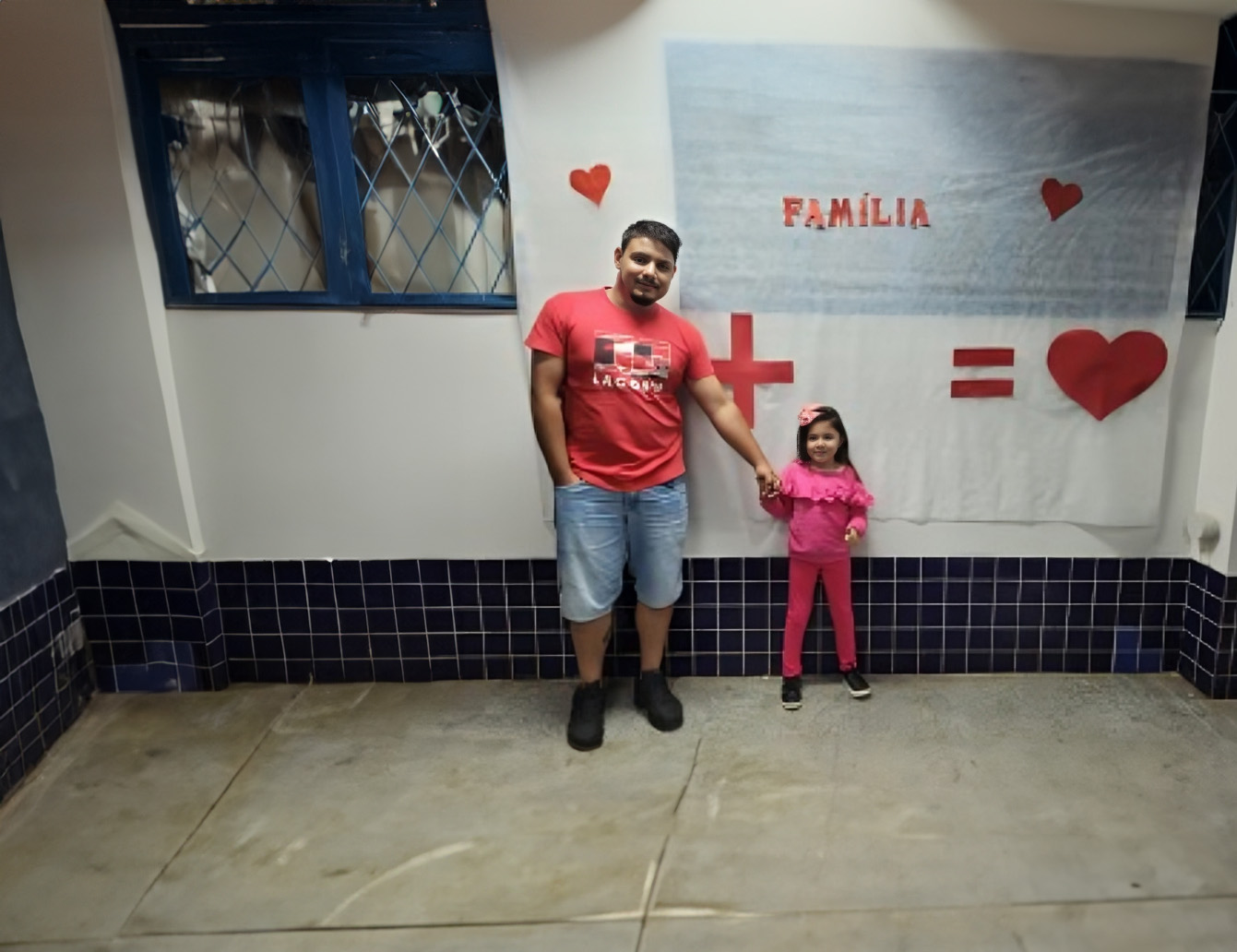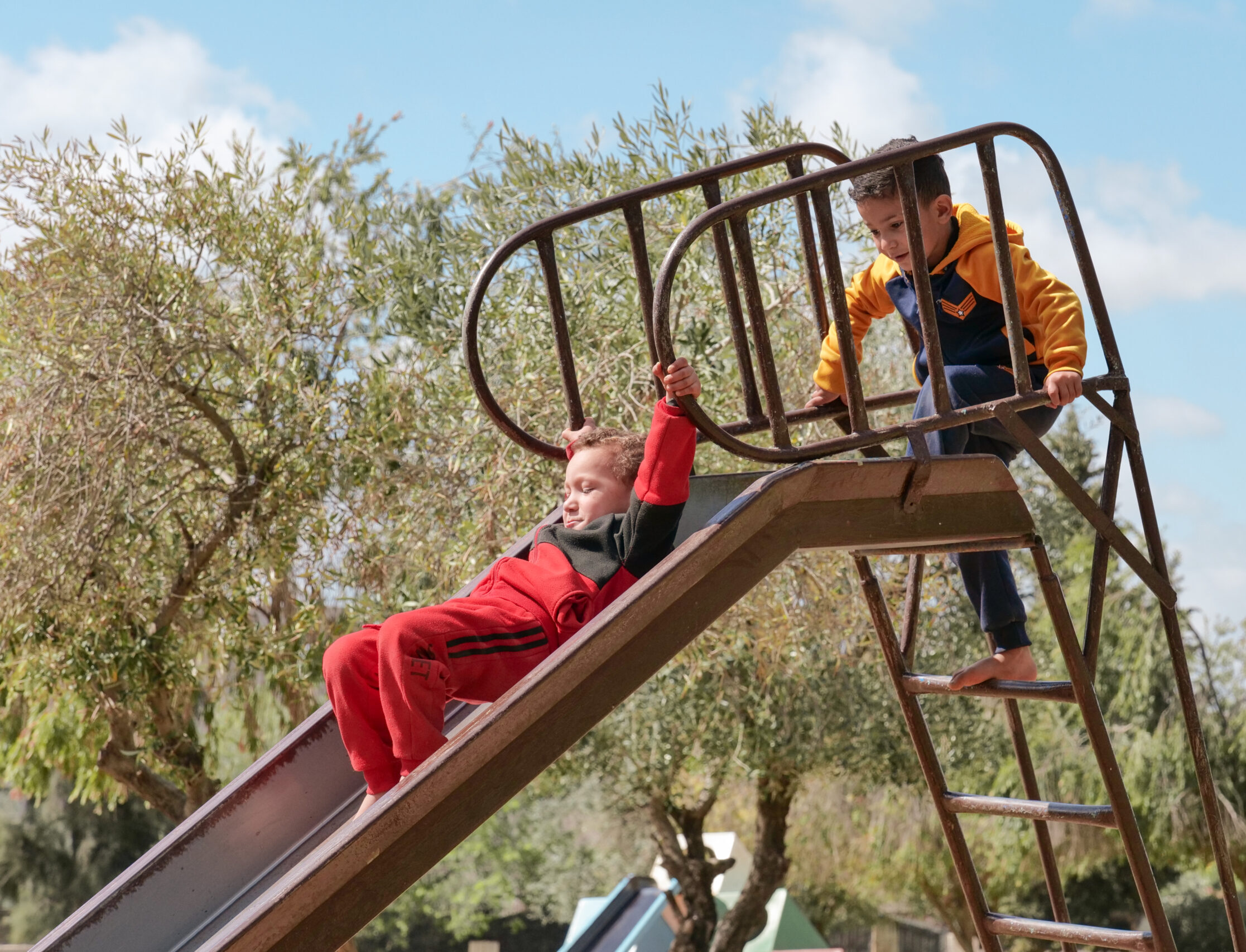“At times, in the meetings with family members, everyone got emotional”, say Mariana and Andreia, two members of the team that implement the Família+ programme in Recife, Brazil. “Reports of small changes in caregivers’ habits made it clear that they often need to feel a gaze that is caring, that directs without demanding, that teaches without judging, and that welcomes the fears and uncertainties of being a parent, grandparent, or other kind of caregiver.”
Família+ is an initiative by Espaço Àra Educação, an organisation dedicated to empowering parents in navigating various support systems, including education, health, and social assistance. It is a multilevel parental engagement strategy that uses evidence-based behavioural science practices, leveraged by the power of technology, to provide support to caregivers through the education network. This strategy employs a systematic process and co-creation methodology that builds upon the existing relationship between teachers/school coordinators and parents. It aims to enhance the relationship between caregivers and children by strengthening their bond and supporting their development.
The programme engages with parents through early education providers to improve the quality of their interactions with their children. It seeks to strengthen relationships between schools and families, and support school staff to engage with caregivers. It draws on multiple disciplines, from education to behavioural science and positive communication.

Participation is at the heart of effectiveness
Família+ was co-created with the participation of schools and parents. The team held focus groups with parents to hear about their routines, needs, and beliefs about parenting. Mothers, for example, reported that their children spent a significant amount of time on screens, whether playing with their cell phones or watching movies on TV or at the cinema. They often expressed a strong desire to spend more quality time with their children, but lacked ideas about what types of activities they could build into their daily routines.
“I like to play with him, I like to see him playing,” said one mother, “but we don’t always have the chance. There are times when I have to do things around the house, so I put him on the TV, put his cell phone on, and he stays there quietly.”
The intervention consists of short video and text messages sent to parents twice a week for 12 weeks by school coordinators; a training course, based on learning from experience and from peers; and structured workshops, bringing families and schools together. The messages and activities give tips on using encouragement and positive reinforcement when interacting with children, and suggestions for promoting caregivers’ mental health and wellbeing.

Expanding after a successful pilot
Familia+ has been implemented in two Brazilian cities, Cascavel and Recife, so far reaching over 10,000 children through 120 early childhood education centres.
Qualitative analyses in both municipalities showed that Família+ is feasible. Educators observed that caregivers found the text messages to be informative and valuable – especially when combined with videos, which made them more engaging and accessible. Surveys showed that a large proportion of caregivers completed the suggested activities and engaged in them once or twice a week – corresponding to the frequency of activity prompts.
Implementation in the two cities so far has also pointed to learning experiences. In Cascavel, for example, feedback and implementation were made more efficient by a WhatsApp group for real-time communication among coordinators and the Família+ team. In Recife, coordinating across the municipality proved a challenge, despite the enthusiasm of staff – though a small-scale initial pilot, with a control group and data monitoring, helped to build capability and provide evidence of its potential impact.
Post-implementation focus groups helped to understand how families in the pilot programme engaged with the messages. Karina Satiro, a school coordinator from Cascavel, stated: “Família+ certainly has contributed to the children’s development, because they had more time to bond and develop with their families.” Mariana and Andreia, from Recife, add: “Together, the school management, teachers and Família+ have managed to get inside the homes of these families and started to make subtle changes in the lives of the children and their caretakers.” Família+ is now expanding in both cities, as well as to the state of Ceará, incorporating wellbeing strategies focusing on caregivers in early childhood education.

Meet teachers, coordinators, pedagogical advisors, parents and children engaged in Family+ Cascavel


